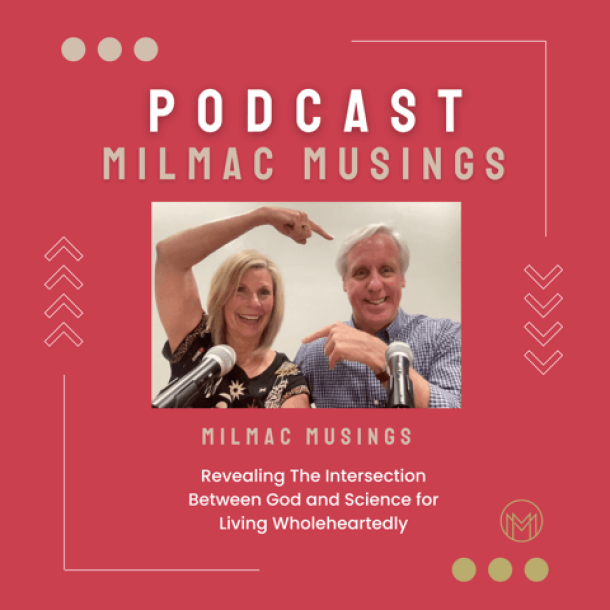Trusting God can be challenging if you don't have a personal relationship with Him. Here we talk about growth in trusting God by coming to know Him through prayer and meditation.
This is the third post of a blog series offering practical steps rooted in Christ and biblical principles to help you build resilience and trust in God's plan. By following these steps, you'll learn to navigate life's trials with faith and confidence, leaning on Christ's everlasting support.
If you missed it, click to read, Understanding Biblical Resilience, the first post in this series.
If you missed it, click to read, Building A Resilient Faith: Jesus Our Model, the second post in this series.
Trusting God: Strengthening Your Relationship with Christ Through Prayer and Meditation
In today's fast-paced world, finding time to connect with Christ and strengthen our faith can be challenging. However, cultivating a deeper relationship with God through prayer and meditation can profoundly impact our lives. Here, we explore two key concepts that can help you fully trust God: strengthening your relationship with Christ through prayer, meditation, and practical steps for daily faith-building practices.
Strengthening Your Relationship with Christ Through Prayer and Meditation
The Power of Prayer
Prayer is our direct line of communication with God. It's more than just a ritual; it's vital to building a relationship with Christ. When we pray, we open our hearts to God, sharing our joys, sorrows, fears, challenges, and hopes. Here are some ways to deepen your prayer life:
Set Aside Regular Time for Prayer: Just as you would schedule a meeting with a friend, allocate specific times each day for prayer. For years, I added a morning papers appointment to my calendar until I developed a habit for this time. Consistency helps create a habit and reinforces the importance of prayer in your life.
Create a Sacred Space: Designate a quiet, distraction-free area for prayer. This space can be as simple as a corner of a room with a comfortable chair and a few meaningful items, such as a cross or a Bible. The scent of a space is essential to me, so I include a candle.
Be Honest and Open: Approach prayer with authenticity. God knows your heart, so speak openly about your thoughts and feelings. This honesty fosters a deeper connection. Being completely naked (vulnerable) with God encourages authenticity.
Listen as Well as Speak: Prayer is a two-way conversation. Take time to listen for God's voice and guidance. This can come through a sense of peace, new insight, or conviction.
The Role of Meditation
The world will tell you to empty your mind and listen. Meditation is is heart-level reading; being moved by it; needed for deeper soul transformation. It's focusing your mind and heart on God's word and presence. It allows you to reflect on His promises and draw closer to Him. Here's how to incorporate meditation into your spiritual routine:
Choose Scripture to Meditate On: Select a Bible verse or passage that speaks to you. Spend time reading and rereading it, letting its message sink into your heart. Write it three or four times as you read it aloud.
Reflect and Contemplate: Think deeply about the chosen scripture. What is God saying to you through these words? How can you apply this message to your life?
Use Breathing Techniques: Deep, slow breathing can help you relax and focus your mind. As you breathe in, think about receiving God's love and peace. As you breathe out, release any worries or distractions.
Journal Your Thoughts: Writing down your reflections can solidify your insights and provide a record of your spiritual journey. Review these entries periodically to see how God has worked in your life.
Practical Steps for Daily Faith-Building Practices
Building your faith is an ongoing process that requires intentional actions and practices. Here are some practical steps you can take daily to strengthen your faith:
Start Your Day with Devotion
Begin each day by dedicating time to God. Read a devotional, spend a few minutes in prayer, and meditate on a scripture passage. This will set a positive tone for the day and remind you of God's presence in your life. Use worship music as a background during your prayer and meditation time to help focus your thoughts and praise on God.
Engage in Bible Study
Regularly studying the Bible helps you understand God's character, promises, and plans for your life. Join a Bible study group where you can glean or add value, or follow a reading plan to keep yourself accountable and gain new insights from others.
Practice Gratitude
Cultivate a habit of thanking God for all your circumstances by acknowledging the blessings in your life. Each day, write down three things you are thankful for (this was one of my first practices). This practice shifts your focus from challenges to God's goodness.
Serve Others
Serving others is a tangible way to express your faith and love for God. Look for opportunities to help those in need, whether through volunteering, offering a listening ear, or performing acts of kindness. One way to serve is to pray for others through intercessory prayer, which can strengthen your empathy and connection to your faith community.
Surround Yourself with a Faith Community
Being part of a faith community provides support, encouragement, and accountability. To build relationships with fellow believers, attend church services, join small groups, and participate in fellowship activities.
Incorporate Faith in Daily Activities:
Find ways to integrate faith into everyday tasks, such as listening to faith-based podcasts during commutes or exercising. Use reminders or apps to receive daily Bible verses or inspirational quotes.
Reflect on Your Day
At the end of each day, take a few moments to reflect on how you saw God at work. Consider what you learned, how you grew, and what you can improve. This practice helps you stay mindful of God's presence, guidance and faithfulness.
Key Scriptures for Trusting God
God, whose word I praise, God I trust; I do not fear. -Psalms 56:4
Let not your hearts be troubled. Believe in God, believe also in me. -John 14:1
God I trust; I do not fear. What can mere humankind do to me? -Psalms 56:11
Be anxious for nothing, but in everything by prayer and supplication with thanksgiving, let your requests be made known to God. -Philippians 4:6
Trust him at all times, O people; pour out before him your heart. God is a refuge for us, Selah. -Psalm 62:8
But as for me, I trust you, O Yahweh. I say, "You are my God." -Psalm 31:14
But without faith it is impossible to please Him, for he who comes to God must believe that He is, and that He is a rewarder of those who seek Him diligently.
Trusting God is a journey that involves deepening your relationship with Christ at a heart level and building your faith through daily practices. By committing to prayer, meditation, and practical steps, you can cultivate a resilient faith trusting God that carries you through life's challenges. These suggestions are not exhaustive but investing time in prayer and daily practices are excellent starters to help increase trusting God. Remember, God is always with you, guiding and supporting you every step of the way.
What We Know Is True:

Believing is Trust.
“You can Triumphantly Bounce Back by Taking Faithful Steps with Jesus”
In the fourth post on this topic we will cover "Trusting God With His Plan."
Photo Credit: Olivia Snow on Unsplash







